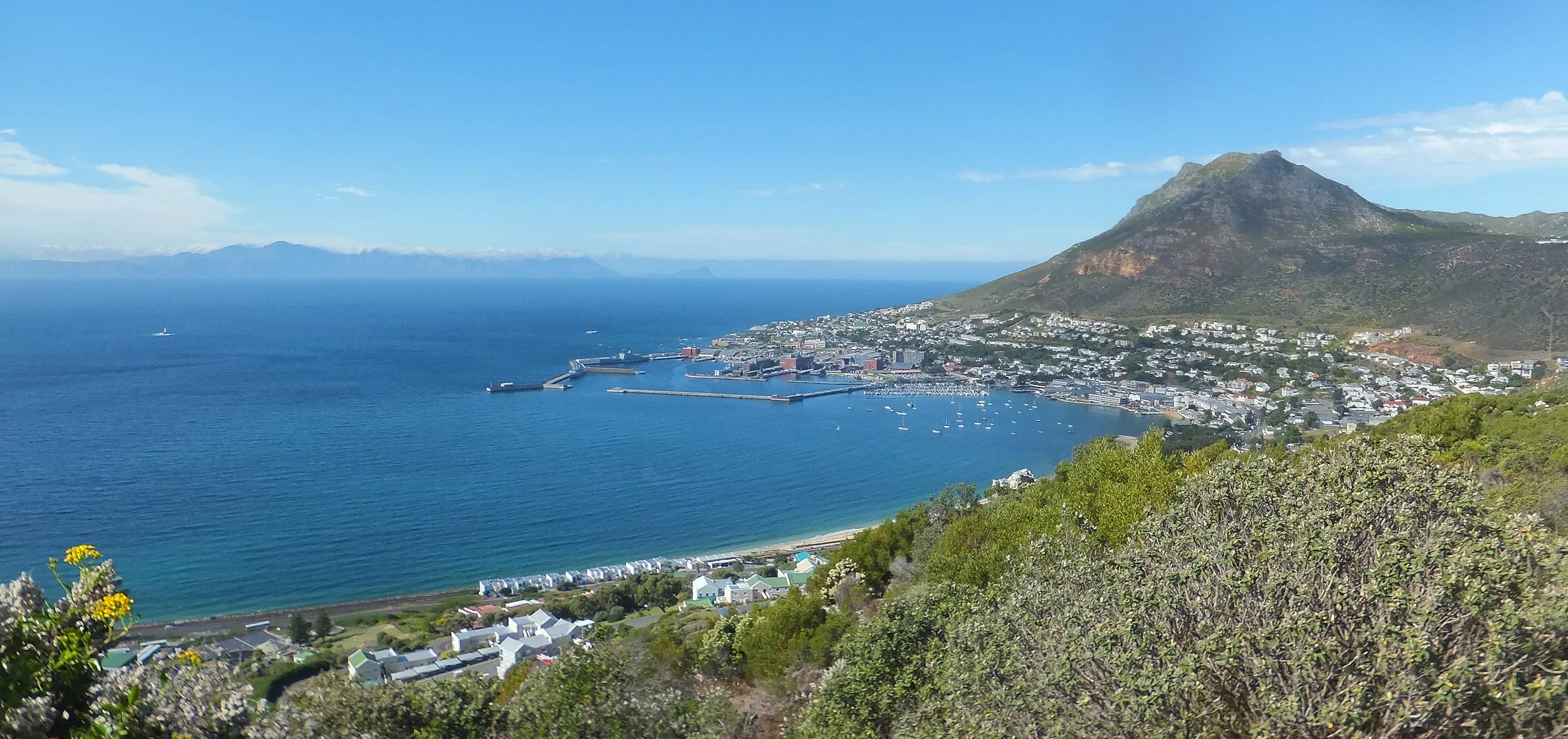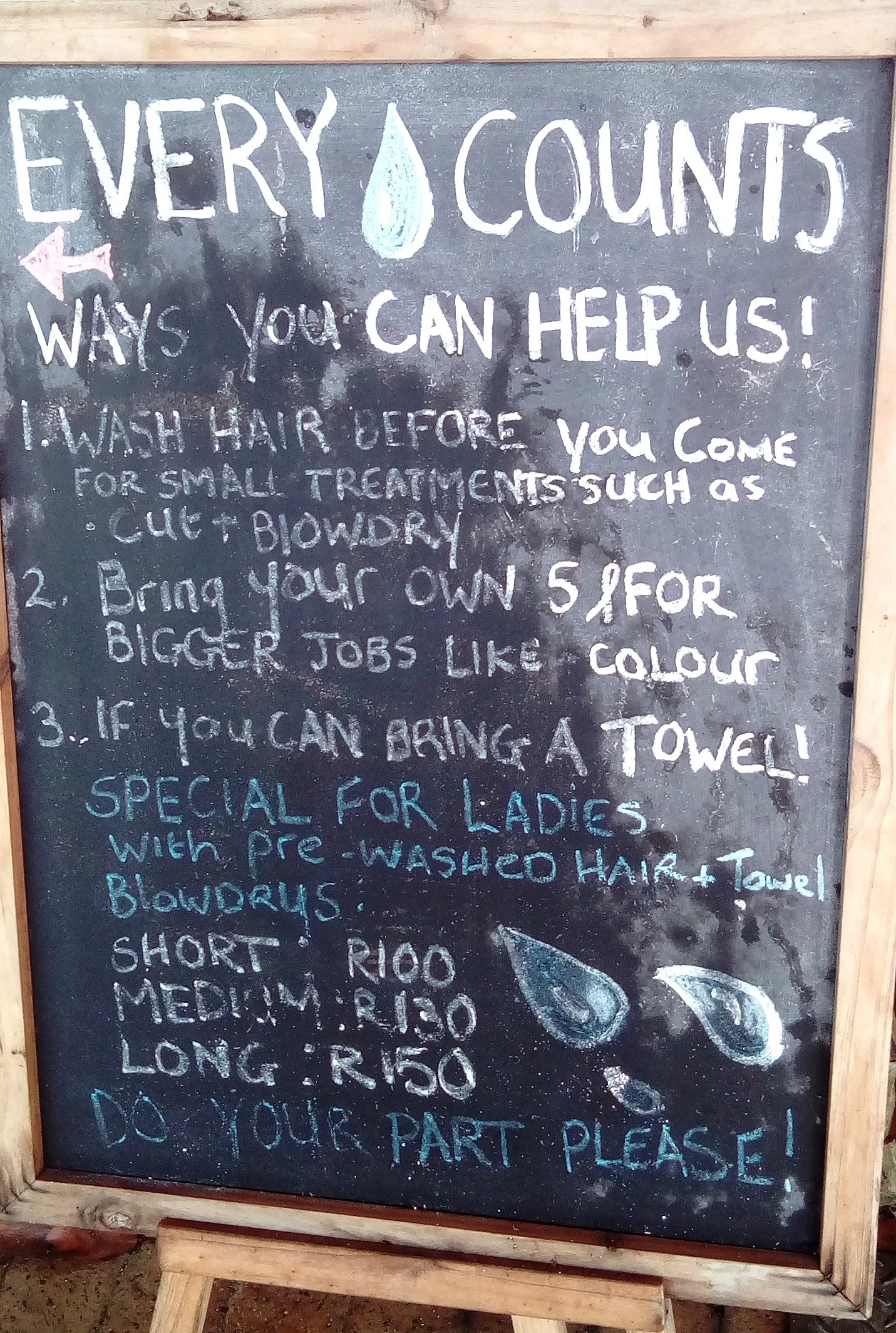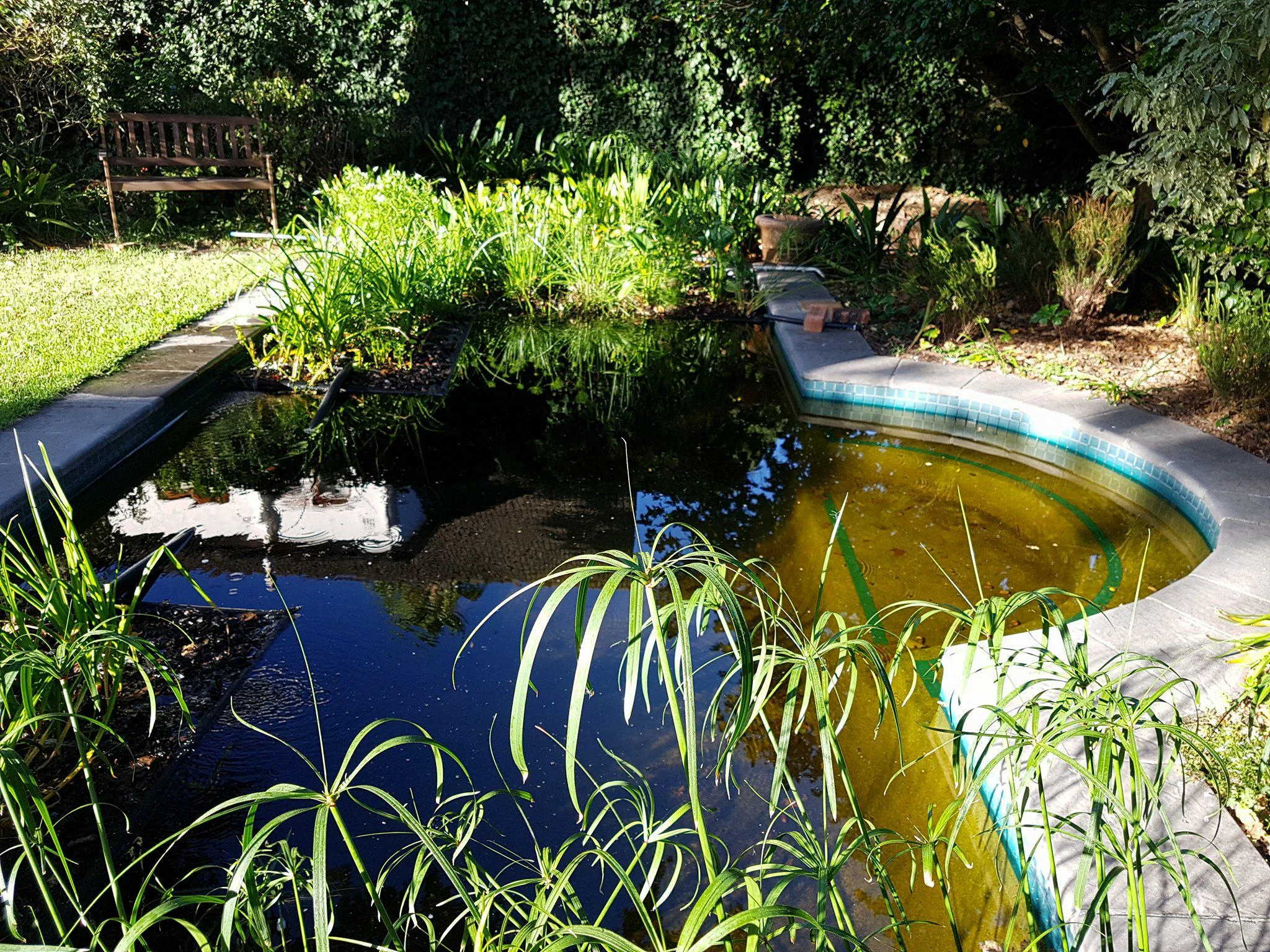1001 water-wise ways: This one is for small businesses
Simonstown: water, water everywhere, but...
I can't believe this is the sixth water round-up -- I had such good intentions of keeping all the tips numbered, but that went out the window (or out with the bathwater?) a while back. And still the tips and ideas and mind-shifts keep coming -- thanks to everyone who's gotten in touch, it really is appreciated.
It was a busy water week, and I was asked to speak to the Simonstown Business Association members -- a sparky bunch, and they're responsible for much of what follows. I felt a charlatan speaking to folk in the hospitality and retail industries, as I've never run a small business, unless you count being a freelancer for 21 years. But we're all sharing the same water learning curve, so it was good to bounce ideas off this group.
Businesses are perhaps more focused than the rest of us if we think about the progress of our responses to the crisis. We've clearly gotten over the panic and distress of late January and early February. Now we're either at the denial stage (we seem to believe that Day Zero will never come) or we've knuckled down and are doing our best, and after the initial wailing, we've found it's not hard to manage on less than 50 litres a day each, and soon the rains will come, and what was all that fuss about?
But small business owners -- especially those in the hospitality industry -- know that it will never quite be "business as usual" again. The threat of water scarcity is real, it is here, and it is not going away. We will encounter this scenario again and again in the near future, and any preparation we do now will stand us in good stead.
We all agree on one thing: we want visitors and tourists to keep coming to Cape Town. As said before, many times, it's critical that people keep their jobs, especially in the restaurant and guesthouse industries -- the crisis has already cost so many jobs. And to keep employing people, we need to keep our businesses afloat (indulge me), and that means keeping people flowing in (OK, I'll stop now).
This may be too Pollyanna for many, but maybe we can make water-saving fun, inventive and even a bit sexy, so that tourists can reminisce and even brag a little: "Remember when we went to Cape Town during the water shortage, and we all had buckets in the showers?" Our attitude in communicating with guests, clients and customers is also critical: if we are dour and finger-waggy about the Rules (like those British seaside B&Bs of the 1950s and 60s), we're going to alienate people. Try to serve up water restrictions with a dollop of humour: one of my favourite guesthouse tricks, practiced by my friend Penny, is to criss-cross the bath with crime-scene tape. This is very funny, a great Instagram opportunity, and no one feels preached at.
This is also an opportunity to rethink the way we train our staff: many of them have first-hand experience of water-saving ways, but may be weary at the thought of having to do things the long and difficult way round. I've written before that according to psychologists and social workers I've chatted to, rewards, praise and making certain behaviours "cool" are the best routes to take when changing habits and routines, so be a cheerleader for your staff: give rewards or small prizes for the most water-wise behaviours and strategies. Keep encouraging and praising, and if your guests or clients join in, thank them and make them feel that they're on your team -- part of the solution, not the problem.
Out this morning, I spotted this sign chalked up outside a local hairdressing salon, and liked the cheerful and can-do tone, and also the fact that it offers water-wise clients special prices. Everyone likes a bargain, and the current scenario does present opportunities as well as difficulties.
I've already suggested that guesthouses offer visitors who bring and take away their own linen (especially if they are business visitors only staying for one or two nights) a free bottle of wine or small discount or similar, and we've already seen Anita's excellent water-wise tips for restaurants and coffee-shops. Just as some guesthouses have those decanters of sherry standing in the hallway to welcome guests, perhaps early in the evening is a good time to set out a pretty old-fashioned ewer and jug full of warm scented water from a well or spring, with embroidered handtowels, to welcome guests back from a hot day eating sticky ice-creams at the beach, or clients to a restaurant. Water-wise does not have to equate grim. It can still be gracious.
To go back to planning for the future, some long-term ideas: almost every guesthouse or hotel bathroom in Southern Europe (which has the same Mediterranean climate as us) has only a shower, toilet, bidet and basin. This really does cover all bases (couldn't resist), and these are the bathrooms our hospitality industry needs as premises are expanded and converted, rather than spa baths and vast Victorian tubs. This is not Pudding Island and we do not live under a perpetual cloud of drizzle.
Something to consider -- you could even make it a selling point -- is converting your pool into a soothing and attractive eco-pool. I've been smitten by a friend's successful conversion: look at this beauty, once a regular chlorinated pool (I am not a fan of that unnatural blue).
Picture credit: Helen Laurenson
The idea is to keep a space amidst the reeds and rushes for taking dips, and the water is clean, soft on the skin (the source in this case is the overflow from the rain-tank, and the above shows its natural colour) and there's no need to shower afterwards to wash off that chlorine itch. Consult an expert if necessary and do the conversion over the winter, so that you have a beautiful green pool for your guests to lie beside next summer, where they can enjoy the dragonflies and frogs (who will keep the mozzies at bay).


